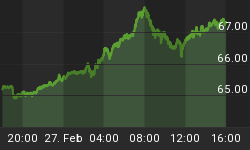The decade of the 1960s stood orthodoxy on its head. It was a time when alternative everything got a hearing. Expertise came into doubt; the phrase "some decisions are too important to be left to the experts" was heard everywhere.
The seer of the day was Ralph Nader. Government was only trusted as a regulator. So it regulated: the environment, the schools, the workplace, the airline industry, the communications industry, and new industries like nuclear power. Anything that had escaped regulation in the 1930s got swept up in new regulations. And those 1930s regulations for banks and utilities were applauded.
Well, this decade is beginning to emulate the anti-establishment passion of 50 years ago. In particular, a despised government is being asked to regulate.
Make no mistake, regulation is in the air. Even Republican free-marketeers are blaming a lack of regulatory oversight for the environmental disaster in the Gulf of Mexico and the collapse of mortgage finance giants Fannie Mae and Freddie Mac.
We are headed back to the future because some, though not all, of the underlying drivers of the 1960s are in place today.
The core of our crises today is as it was then: a sense of betrayal by our institutions. In banking, the environment and foreign policy, the left and the right feel they have been let down. They may be deeply divided on the degree of regulation that is needed, but the sense that key areas of our national life are broken is pervasive.
Besides the lost jobs, diminished 401(k) savings, recriminations over troop levels and tactics in two wars, and mounting national debt, there is now the catastrophic oil spill in the Gulf -- a crowning failure, if you will. Taken together they wipe out confidence and bring opprobrium on big institutions.
Big is bad. Big is out. Big cannot be trusted. Big has no civic conscience, whether it is banks paying themselves too well in a time of shortage or oil companies failing to take care when punching holes in the ocean floor. Big screws up big time.
The collateral damage is that, like the 1960s, no one is going to believe the experts on almost anything. People are not going to believe that giant airliners are needed, nor that biotechnology is good for the food chain.
The 1960s brought on an age of studies which, like polling, have become a news staple. These studies pour out of universities, think tanks, government departments and consultancies. Mostly they serve the people who fund them, so they get a brief life in the 24-hour news cycle and then leave us confused.
Are mammograms good or bad? Is there too much heart surgery? Does television affect deductive reasoning? Is weight training better than aerobic exercise? Will red wine and oatmeal cookies keep you going for 100 years?
Despite the contradictions implicit in expertise, we were just getting used to taking experts seriously again. We believed that bankers were oh-so-clever that they deserved oh-so-much money for what they did. Now we know they were just oh-so-greedy.
We believed that Toyota made the best and safest range of cars in the world, and that those Japanese quality-assurance types had it all over everyone else. Ooops! Got that one wrong.
And we believed that the clever people in the government knew how to conquer Iraq and turn it into the democratic beacon for the region. Not quite.
The problem with this institutional failure is the damage it will do in the future. Who is going to believe that the next drug or vaccine is safe? We won't believe the experts and their studies. Ditto new nuclear power plants (which I favor), bridges, roads, high-speed trains and innovative skyscrapers.
The late Sen. Daniel Patrick Moynihan, D-N.Y., lamented the decision-making freeze that prevented the creation of Westway, an elaborate and revolutionary highway and development project along Manhattan's derelict Far West Side. In losing our faith in expertise, as we did in the 1960s, we lost our ability to take decisions.
Now it's happening again. Thank you BP, AIG and Citibank.
Source: http://oilprice.com/Geo-Politics/North-America/Regulation-Era---The-60s-Return.html
By Llewellyn King for Oilprice.com who offer detailed analysis on Oil, Geopolitics, Gold and most other Commodities. They also provide free political and economic intelligence to help investors gain a greater understanding of world events and the impact they have on certain regions and sectors. Visit: http://www.oilprice.com















